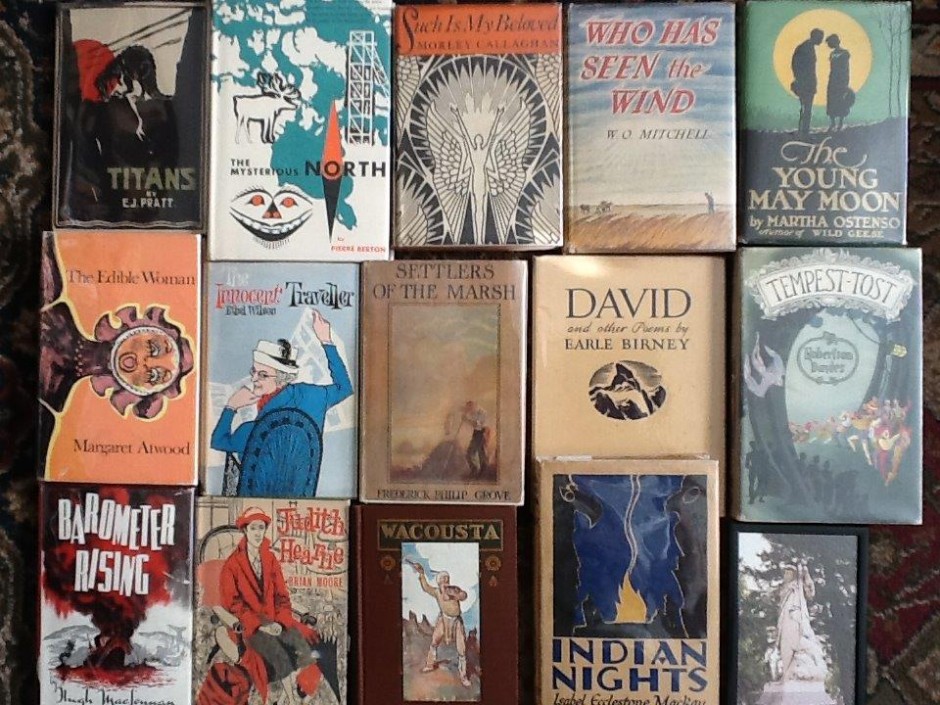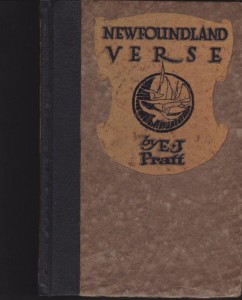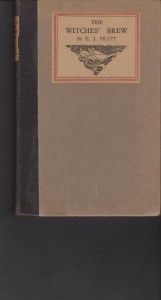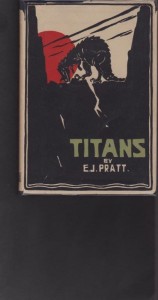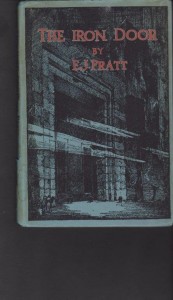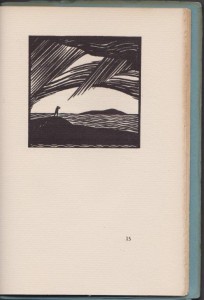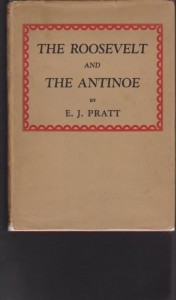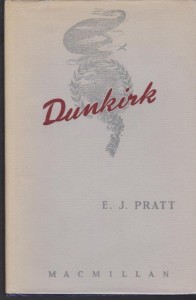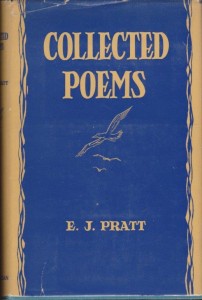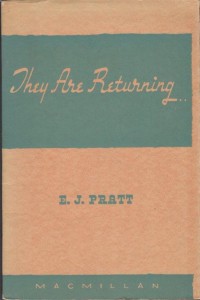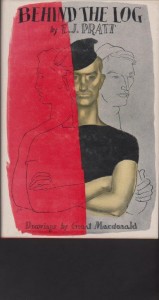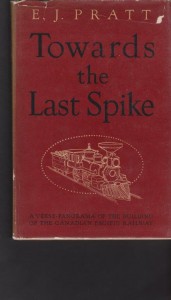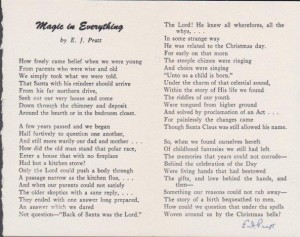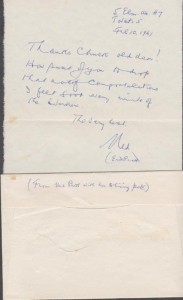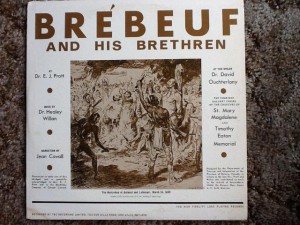(starting out–the young Pratt; from Canadian Poets, ed. John W. Garvin, McClelland & Stewart, 1926)
(rare signed; Ryerson, 1923 hardback decorated by Fred Varley, Group of 7 artist)
(Macmillan, 1925 hardback, illustrated by John Austen)
(rare dj of this signed 1926 Macmillan, dedicated to “The Boys of the Stag Parties”; the book cost $1 when released)
(scarce signed 1927 Macmillan dj by Eric Arthur)
(one of the unique abstract illustrations for the above book by Thoreau MacDonald)
(1 0f 2 djs of this 1930 Macmillan title about a famous sea rescue; one signed by Pratt , the other by the captain of the Antinoe as well as a laid-in newspaper story of the day about the rescue)
(numbered reprint dj copy signed by Pratt, Macmillan, 1941)
(scarce 1943 dj Macmilllan)
(the 1st 1944 dj Collected Poems)
(the double-fold covered 1944 Macmillan chapbook)
(yet another naval adventure; the 1947 dj Macmillan. nicely illustrated by Grant MacDonald who also illustrated Leacock’s Sunshine Sketches)
(his last book–signed– which won his last GG Award, cost $2 to buy in 1952.)
(a rare signed Christmas card poem)
(1961 envelope and letter to a friend–Ned (his chosen name with close friends) was the first Canadian poet to be broadcast on t.v. and radio; note his humorous reference to his physical appearance on the envelope!)
(this is an incredibly rare 1967 2 LP release of Pratt’s major poem; TBC recording)
Born in Western Bay, N.L., E.J. Pratt–Edwin John (1887-1964) had a long run as the leading and distinguished poet of his day, winning many awards including three Governor General’s in 1937 (Fable of the Goats), 1940 (Brebeuf and His Brethren), and 1952 (Towards the Last Spike). His father was a famous sea captain, and Pratt himself grew up with a great familiarity of the sea, which is reflected in his first collection Newfoundland Verse, published in 1923.
He was a long-time professor at Victoria College and his star pupil was Northrop Frye. Pratt always chose large landscapes and topics to write narrative verse about as evidenced by the following list of topics: the sinking of the Titanic, the Roosevelt and Antinoe, Dunkirk, the building of the C.P.R., and the assassinations of Brebeuf and other priests. Pratt’s “Brebeuf and His Brethren” was a literary event broadcast on national radio in 1943; one year later it was set to music and sung in Toronto. (c.f. rare record album cited above)
